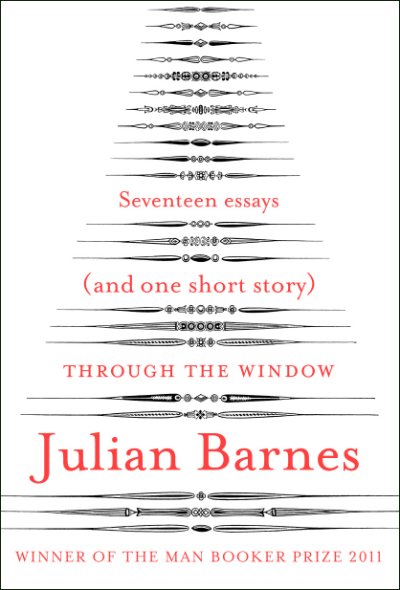
Admittedly, it is early the year to be nailing colours to masts. But having read little more than the preface of Julian Barnes’ new collection of essays (and one short story) I am already finding it hard to imagine how it will be possible to discover a more moving apology on the whys and what-fors of fiction for many years to come. I’m including an extract from it here in the hope that I can persuade you to read pick up the book in its entirety.
This, simply put, in graphic form, is what I have always believed, as a reader and as a novelist. Fiction, more than any other written form, explains and expands life. Biology, of course, also explains life; so do biography and biochemistry and biophysics and biomechanics and biopsychology. But all the biosciences yield to biofiction. Novels tell us the most truth about life: what it is, how we live it, what it might be for, how we enjoy and value it, how it goes wrong, and how we lose it. Novels speak to and from the mind, the heart, the eye, the genitals, the skin; the conscious and the subconscious. What it is to be an individual, what it means to be part of a society. What it means to be alone. Alone, and yet in company: that is the paradoxical position of the reader. Alone in the company of a writer who speaks in the silence of your mind. And – a further paradox – it makes no difference whether that writer is alive or dead. Fiction makes characters who have never existed as real as your friends, and makes dead writers as alive as a television newsreader.
So most of the pieces in this book are about fiction and its associated forms: the narrative poem, the essay, the translation. How it works and why it works and when it doesn’t. We are, in our deepest selves, narrative animals; also, seekers of answers. The best fiction rarely provides answers; but it does formulate the questions exceptionally well. J.B.
Thus far, in addition to the preface, I have also read his essay about the novelist Penelope Fitzgerald. I will be astonished if anything more moving has ever been written about, or even to, her before. I was moved to tears, and I never met her. How beautiful, but devastatingly beautiful, it would be to read it if one actually knew her, I will only ever be able to imagine. But thankfully, there is Julian Barnes, so generously ready, willing and intoxicatingly, heartachingly able to help with this.
Like this:
Like Loading...